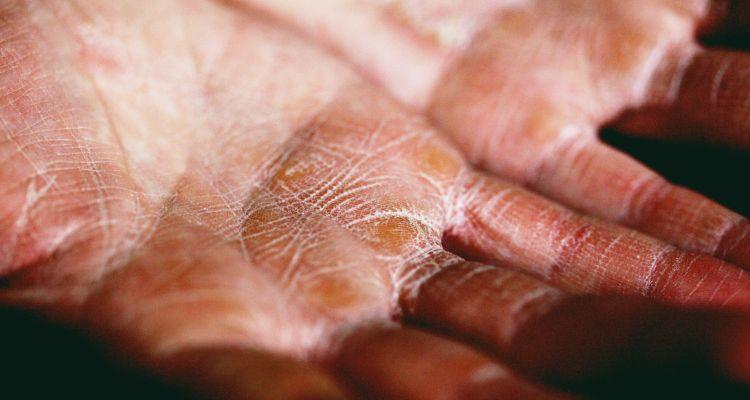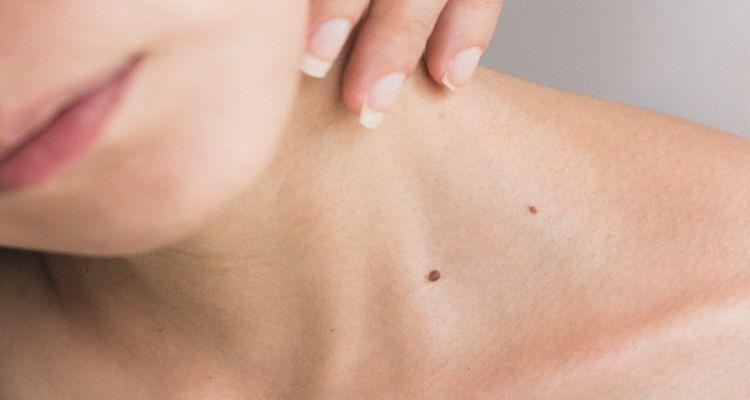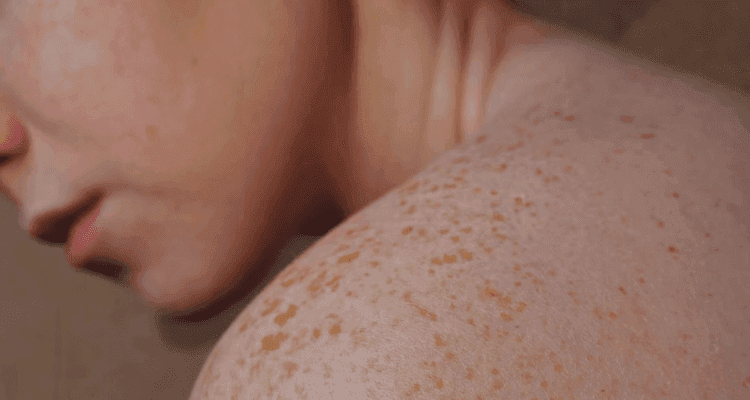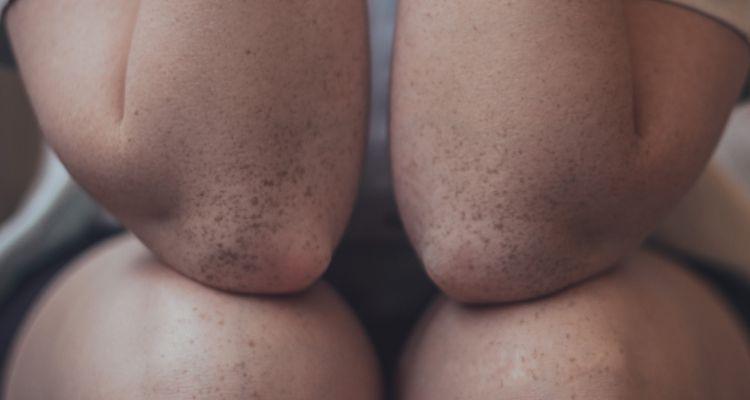
Vaginal dryness - symptoms, causes & treatment
Updated on 02. November 2023
Itching, burning or pain during sexual intercourse can be signs of vaginal dryness. Although this condition is common, many women do not talk about it. Yet about one in three women in Germany suffers from dry vagina after the menopause. But even in young women, diseases, hormonal changes and other factors can cause a dry intimate area. But the condition does not have to affect the quality of life, because the possibilities of successful therapy are great.
Vaginal dryness Brief overview:
- Causes: Hormone fluctuations, menopause, stress and psychological strain
- Symptoms: Itching, burning, feeling of pressure, pain during sexual intercourse
- Prevention: Avoid excessive intimate hygiene, pads instead of tampons during periods
- Treatment: Medication, home remedies for mild symptoms, creams
Symptoms of vaginal dryness
With vaginal dryness or vaginal atrophy in medical terms, the natural moisture balance of the mucous membranes in the intimate area is disturbed. This leads to problems in everyday life and during sexual intercourse. Unfortunately, many women find the topic too intimate and therefore do not talk about it with friends, their doctor or their partner. However, vaginal dryness can be treated very well before side effects such as infections occur.
What are the symptoms of vaginal dryness?
The effects of vaginal dryness are manifold. Often vaginal dryness leads to
- Itching and burning
- A feeling of pressure in the genital area
- Increased susceptibility to inflammation
- Pain during sexual intercourse
Not all symptoms of vaginal dryness always occur at the same time. It may be that only one or two symptoms are noticed. If the symptoms are unclear or additional, a gynaecologist should be consulted to clarify the condition. The gynaecologist can rule out other diseases as the cause.
Is vaginal dryness dangerous?
Vaginal atrophy itself is not dangerous. However, the symptoms can often be very unpleasant and rarely get better on their own. In addition, a dry vagina increases the risk of infection, for example, vaginal fungus. The urinary tract and bladder can also be affected. Therefore, treatment of vaginal dryness is important.
How can vaginal dryness and vaginal mycosis be distinguished?
[Vaginal]() mycosis often causes similar symptoms to vaginal dryness. The two diseases can be distinguished mainly by the discharge, which tends to be low in vaginal dryness and smells normal. With vaginal mycosis, on the other hand, the discharge is usually more milky and has a strong odour. If vaginitis is suspected, an examination by a gynaecologist is necessary.
Can the examination at the gynaecologist be painful?
In some women, vaginal atrophy is also noticeable through pain during the gynaecological examination. But regular screening is important for health and early detection of disease. The conversation with the doctor before the examination should be used to discuss the condition.
Can vaginal dryness lead to sexual aversion?
A frequent accompanying syndrome of vaginal dryness is pain during sexual intercourse. When a woman is sexually aroused, the blood flow to the vagina increases. As a result, more moisture is produced. If the vagina is dry, the moisture produced is often insufficient even during arousal. In this case, penetration of the penis is more difficult and can cause pain.
Can vaginal dryness cause blood in the urine?
One consequence of vaginal dryness can be blood in the urine. There can be several causes for this.
- A dry mucous membrane is also brittle. Slight irritation can therefore lead to small, bleeding tears during vaginal dryness.
- If the woman is not moist enough, the vaginal walls become very irritated during sexual intercourse and can bleed.
- Inflammation as a result of vaginal atrophy can additionally affect the urinary tract. The result would be symptoms such as painful urination and blood in the urine.
Causes of vaginal dryness
The causes of vaginal dryness can lie in hormonal as well as psychological disorders. But other factors also promote the problems.
Where does vaginal dryness come from?
Basically, vaginal moisture is strongly controlled by the hormone oestrogen. Therefore, the reasons for vaginal atrophy often lie in the following physical causes.
- Hormonal changes: These can be due to birth control pills, menstruation, menopause, pregnancy or breastfeeding. At the same time, surgical procedures such as removal of the ovaries can cause vaginal dryness.
- Treatments: The drugs of chemotherapy but also radiation in the lower abdomen can trigger vaginal dryness.
- Diseases: Diseases such as high blood pressure, diabetes, endometriosis, [vaginal fungus](), infections with human papillomavirus (HPV) and Sjögren's syndrome can trigger vaginal dryness.
Can vaginal dryness also be caused by external influences?
- Tampons: Tampons absorb not only blood but also vaginal secretions. When there is heavy bleeding, it is mainly blood that is absorbed. When bleeding is light, however, tampons absorb mainly vaginal secretions and can thus cause vaginal atrophy.
- Intimate hygiene: Cleaning the intimate area with drying substances or using them too often can also change the environment in the vagina. This leads to a dry intimate area.
- Clothing: Clothing that is too tight, especially underwear made of synthetic fibres, causes friction and heat in the intimate area.
Can vaginal dryness also have psychological causes?
Once problems have arisen during sex due to vaginal dryness or existing psychological trauma, the psyche often plays a decisive role for further sexual intercourse. Fear of renewed pain is then often mixed with the worry of disappointing the partner. This stress often exacerbates the problems of vaginal dryness.
Why does vaginal dryness occur during pregnancy?
Pregnancy and birth are strongly influenced by hormones. Among other things, the oestrogen level drops during this time. Due to the unbalanced hormone balance, vaginal dryness can occur until the end of the breastfeeding period. After the end of the breastfeeding period, the body usually regulates itself.
Does not drinking enough lead to vaginal dryness?
Two litres of water a day are recommended for women. Drinking too little can dry out the skin and mucous membranes, even in the vagina.
Treat vaginal dryness
The consequences of vaginal dryness can be treated in different ways depending on the cause and your own level of suffering. It is important to remain relaxed and to regard vaginal dryness as a normal condition.
How long does vaginal dryness last?
There is no set duration for vaginal dryness. Younger women without other physical illnesses often feel affected 2-3 days before or after menstruation. After breastfeeding or memopause, the body needs some time during treatment to rebuild the proper vaginal environment.
What are the treatment options for vaginal dryness?
In general, various methods can help with vaginal dryness.
- Avoidance of external influences
- Treatment with home remedies for mild symptoms
- Use of moist creams and ointments
- Treatment with medicines
- Laser treatment
- Psychotherapeutic treatment
What can I do to improve the symptoms?
Especially in the case of external influences, a significant improvement can be achieved with simple means. At the same time, these measures serve to avoid unnecessarily aggravating an existing, hormonal vaginal dryness.
- It is important to drink enough and to follow an appropriate diet. If a hormone deficiency is the cause of vaginal dryness, plant-based oestrogen-containing foods such as soy products, flaxseed and pulses can be helpful.
- The intimate area should be cleaned gently. As long as there is no infection, clear water is sufficient for cleaning. If you do not want to do without a wash lotion, you should choose a pH-neutral and fragrance-free product. Moist toilet paper in the intimate area and intimate sprays or deodorants should also be avoided.
- Clothing that is loose-fitting and made of natural materials such as cotton should be preferred. This applies not only to underwear, but also to pantyhose and trousers. This can prevent a build-up of heat in the intimate area, which can lead to dehydration.
- Since tampons can dry out the vagina, pads should be used instead. Women who feel more comfortable using tampons in public should at least use pads at home. Menstrual cups are particularly recommended, as their soft, non-absorbent surface avoids any friction and unwanted fluid absorption.
- Exercise also promotes blood circulation in the mucous membranes. The better the blood circulation, the moister the tissue. Whether exercising or taking regular longer walks, exercise also helps alleviate vaginal dryness.
- Experts also recommend regular sexual activity. This improves blood flow to the vagina and increases moisture. It does not depend on penetration by the partner. This can also be achieved through masturbation.
What remedies help against vaginal dryness?
The range of products against vaginal dryness is very diverse. Commercially available are:
- Moisturising creams
- Lactic acid creams
- Creams with oestrogen
- Suppositories with and without oestrogen
How can hormone-free creams help against vaginal dryness?
Moisturising creams specially developed for the vagina are effective against vaginal dryness. They moisturise the vagina and reduce itching, burning and pain. Effective moisturisers against vaginal dryness contain hyaluronic acid, glycerol or [witch hazel](). Lactic acid bacteria in many creams have the effect of setting and maintaining the optimal acidic vaginal environment. This prevents infections. Products based purely on lactic acid are also very effective. The creams should not contain additives such as alcohol and essential oils, as these have a drying or skin-irritating effect. Often, moisturisers without oestrogen are sufficient to successfully treat vaginal dryness.
How does a hormone-containing cream work for vaginal dryness?
If the symptoms are severe, a cream containing oestrogen helps against vaginal dryness. It compensates for the lack of hormones locally in the vagina. Therefore, hormone-containing creams do not have the side effects that occur when hormones are taken in tablet form. Oestrogen creams improve blood circulation in the vagina and thus increase moisture.
What are the benefits of suppositories for vaginal dryness?
Two different types of suppositories can be used to treat vaginal dryness. Products without hormones, such as hyaluronic acid suppositories for vaginal dryness, have a moisturising effect. Suppositories containing hormones contain oestrogen, which acts locally in the vaginal area against dryness. One advantage of suppositories is that they are easy and clean to use. As a rule, no pads against leaking oils or lubricating creams are needed. That is why suppositories are ideal companions for on the go.
What do I do for vaginal dryness caused by the pill?
If vaginal atrophy occurs after taking the pill or after switching to another type, this should be discussed with the doctor immediately. Besides vaginal dryness, the pill can cause additional side effects. Therefore, alternative contraceptive methods such as the IUD are advantageous. However, since hormonal IUDs can also cause vaginal dryness, a copper IUD should be preferred. Alternatively, condoms and the cervical mucus method can also be used for contraception.
Can home remedies help with vaginal dryness?
Moisturising remedies are particularly helpful for vaginal dryness, especially due to hormonal changes. Home remedies to restore the correct pH value of the vagina are also used successfully.
- Vinegar bath: The vagina has an acidic environment. If this is disturbed, a vinegar bath can help. Vinegar is mixed with warm water and used as a sitz bath for about ten minutes.
- Yoghurt: Similar to vinegar, yoghurt with its lactic acid bacteria can also support the acidic environment of the vagina. Natural yoghurt is applied to the vagina twice a day for about 20 minutes. By adjusting the correct pH value of the vagina, pathogens can penetrate less easily. In addition, yoghurt has a cooling effect on vaginal dryness and relieves itching.
- Oils: Nourishing and moisturising oils help with dry vagina. Olive oil has proven to be a good home remedy for vaginal dryness. Evening primrose oil, coconut oil and almond oil can also be helpful for vaginal dryness. Using these products makes the vaginal wall more supple and softer. At the same time, it helps against acute burning and itching. Only high-quality and pure oils, preferably from organic cultivation, should be used for this purpose. Organic baby oil based on almond oil is also very nourishing and contains no harmful ingredients.
- Vaseline: Vaseline and lanolin form a protective film on the skin. Especially rough and chapped skin becomes supple and resistant again.
- Aloe vera: The juice of the aloe vera plant is a valuable moisturiser. The gel made from it is excellent for soothing irritated mucous membranes again and thereby alleviating itching and burning. However, only the pure gel without alcohol should be used. Alcohol would reduce the effect, as it has a drying effect on the skin and mucous membranes.
- Ghee: The clarified butter from Ayurvedic medicine can be used as a vaginal poultice. To do this, dip a tampon into the room-warm ghee and insert it. The tampon should remain in the ghee for up to three hours. The treatment should not last longer than a week.
What should be considered when using home remedies for vaginal dryness?
It is difficult to assess which home remedy is best for the individual. Ideally, the product with the best experience with other problems and no known allergies should be selected first. The selected home remedy is first tried out over several days. Constantly switching between different remedies should be avoided, as positive as well as negative effects cannot then be attributed to one home remedy. Home remedies can also cause individual allergic reactions and must then be discontinued immediately.
What to do about vaginal dryness after menopause?
The low oestrogen level after the memopause brings with it various problems for many women. If vaginal dryness is only one of several symptoms of the memopause, a holistic therapy under medical supervision is recommended. Oestrogens in the form of injections or tablets are then often chosen. Sometimes a dry intimate area is the only complaint, or taking oestrogens is undesirable because of the side effects. In this case, tried and tested home remedies, moisturisers or hormone creams can help, depending on the severity.
How does witch hazel work against vaginal dryness?
The virgin [witch h]() azel (Latin witch hazel) contains tannins that have an astringent and anti-inflammatory effect. This can prevent infections that accompany a dry intimate area. Small tears can also subside more quickly thanks to the healing effect of witch hazel.
What helps with vaginal dryness during sexual intercourse?
Does pain occur during sexual intercourse and the vagina does not become properly moist despite arousal? This is a normal consequence of the disease. It is important to find out whether the vaginal atrophy is caused by physical or psychological reasons. A short-term option for vaginal dryness is lubricant gel to help the penis slide into the vagina. If you are intolerant to the ingredients in lubricating creams, you can use a natural lubricating gel. Aloe vera gel without additives is a proven remedy for this.
Note: Coconut oil and olive oil are often recommended as alternative lubricants. However, most condoms are made of materials that are not resistant to oil. Therefore, oils should not be used as alternative lubricants together with a condom. Only aloe vera gel can be used with condoms.
What can be done about psychological causes of vaginal dryness?
Thoughts of the difficult delivery linger, stress at work is distracting or the fear of pain during sexual intercourse is paralysing. Many things can cause arousal to be too low and the vagina to remain too dry. If physical causes have been ruled out as the reason for the condition, stress management methods such as yoga, meditation or progressive muscle relaxation can help. Talking to your partner is very important to avoid blockages and unnecessary pain. As a temporary solution, lubricant can be used at first. There should be no vicious circle of pain during sexual intercourse and subsequent anxiety. If blockages are already present, sexual medical therapy can help.
When is a laser used for vaginal dryness?
In the case of vaginal dryness after menopause, a natural increase in the hormone oestrogen is impossible. Therefore, laser treatment can be useful in cases of severe discomfort. The laser beam stimulates the regeneration of the skin. Vaginal laser therapy must be repeated twice and is not covered by health insurance.

Hameli's vision
Go to Vision
Vaginal Fungus - Symptoms, Causes & Treatment
Go to Vaginal mycosis
Dry skin - What helps against it?
Go to Dry skin
Witch hazel - varieties, cutting, effect, & products
Go to Witch Hazel
Recognise and treat coccygeal fistula
Go to Coccygeal fistula
Anal fistula - symptoms, causes & treatment
Go to Anal fistula
Labial tear - Symptoms, Causes & Treatment
Go to Labial tear
Intertrigo - Cause, symptoms and treatment of the skin wolf
Go to Intertrigo
Anal abscess: symptoms, recognition, causes & treatment
Go to Anal abscess
Chickenpox - symptoms, vaccination, infection and treatment | Hamelis
Go to Chickenpox
Seborrhoeic Eczema - Symptoms, Causes & Treatment
Go to Seborrhoeic eczema
Anal fissure - Symptoms. Causes & home remedies
Go to Anal fissure
Hives - Cause, symptoms and treatment
Go to Hives
Hamelis experts
Go to Experts
Rose lichen - symptoms, causes and treatment
Go to Rose lichen
Scars - treatment and removal
Go to Scar
Ringworm: Symptoms, Causes & Treatment
Go to Ringworm
Scabies - symptoms, cause and treatment
Go to Scabies
Treat anal eczema sustainably
Go to Anal eczema
Eczema - symptoms, causes and treatment
Go to Eczema
Contact allergy - symptoms and treatment
Go to Contact allergy
Treat stubborn nail fungus
Go to Nail fungus
Crabs - Intimate area, symptoms & treatment
Go to Crabs
Pruritus - Causes, symptoms and treatment
Go to Pruritus
Rosacea on the face - symptoms, causes and treatment
Go to Rosacea
Perioral dermatitis - symptoms, treatment & home remedies
Go to Perioral dermatitis
Skin fungus - cause, symptoms and treatment
Go to Skin fungus
Perineal tear - origin, degrees & causes
Go to Perineal laceration
Anal prolapse: symptoms, causes, treatment
Go to Anal prolapse
Skin rash - causes and treatment
Go to Skin rash
Genital herpes - woman, man & symptoms
Go to Genital herpes
Atopic dermatitis in children, adults and pets
Go to Atopic dermatitis
Angioedema - symptoms, causes and therapy
Go to Angioedema
Nappy dermatitis - cause and treatment of sore baby bottom
Go to Diaper rash
Sunburn - symptoms, duration & what helps?
Go to Sunburn
